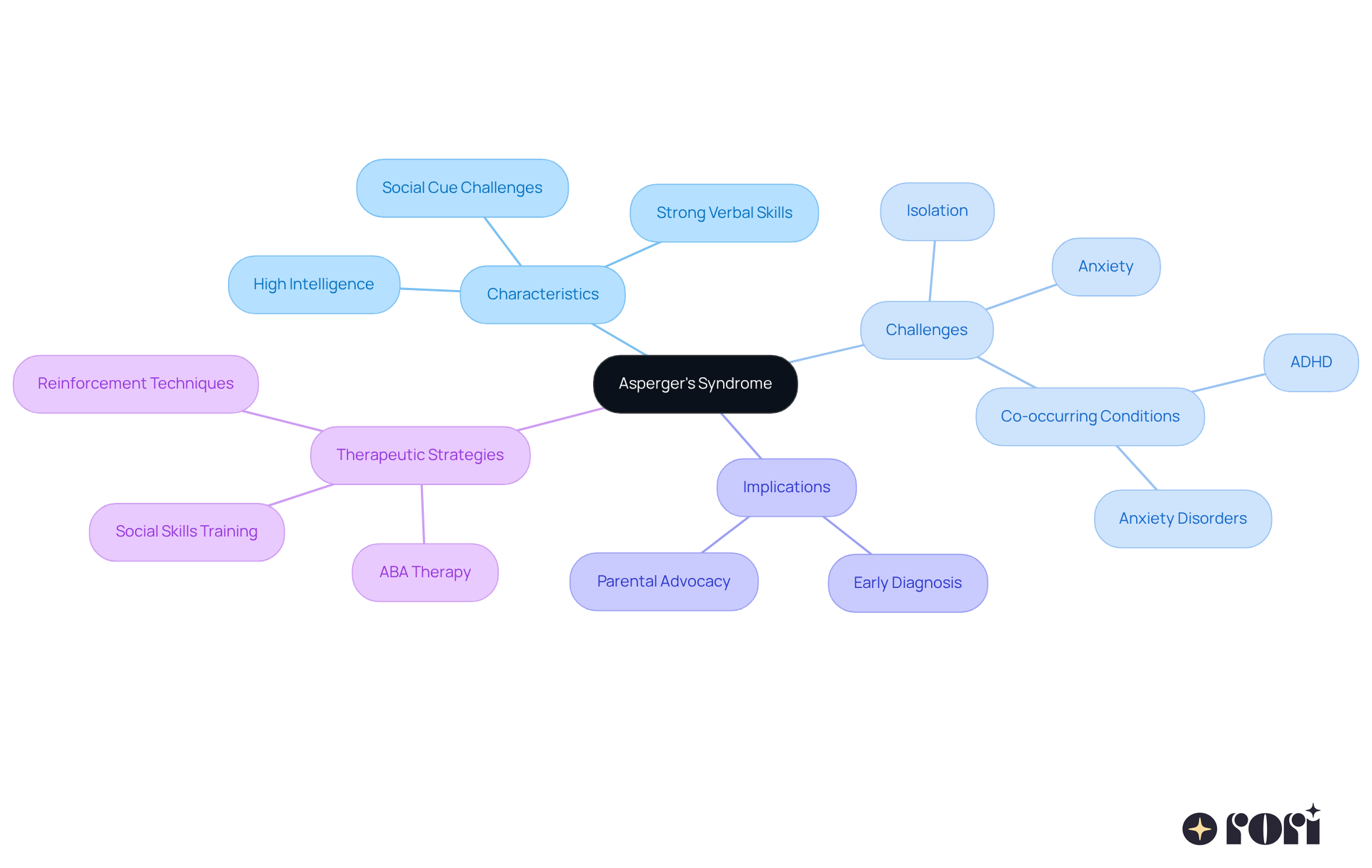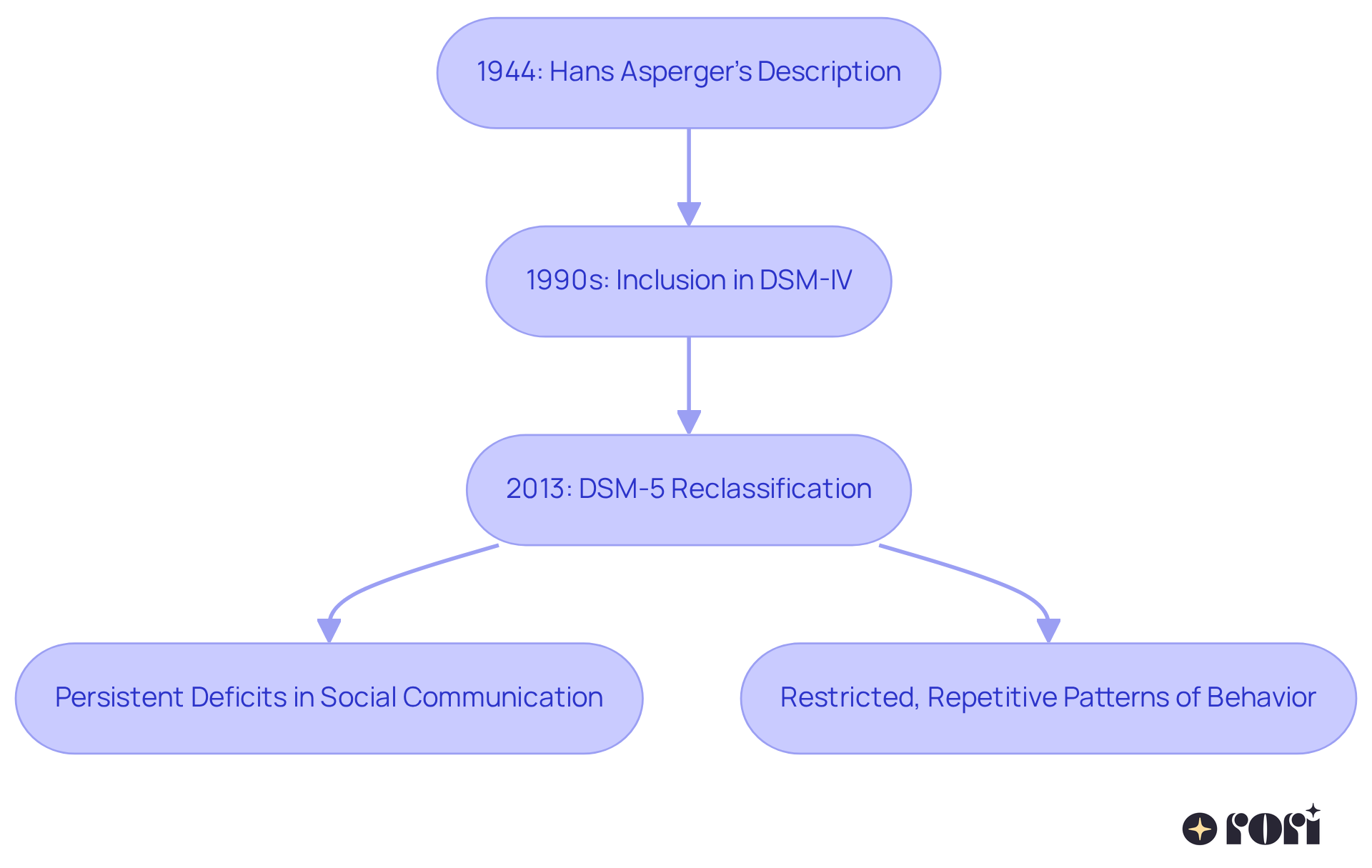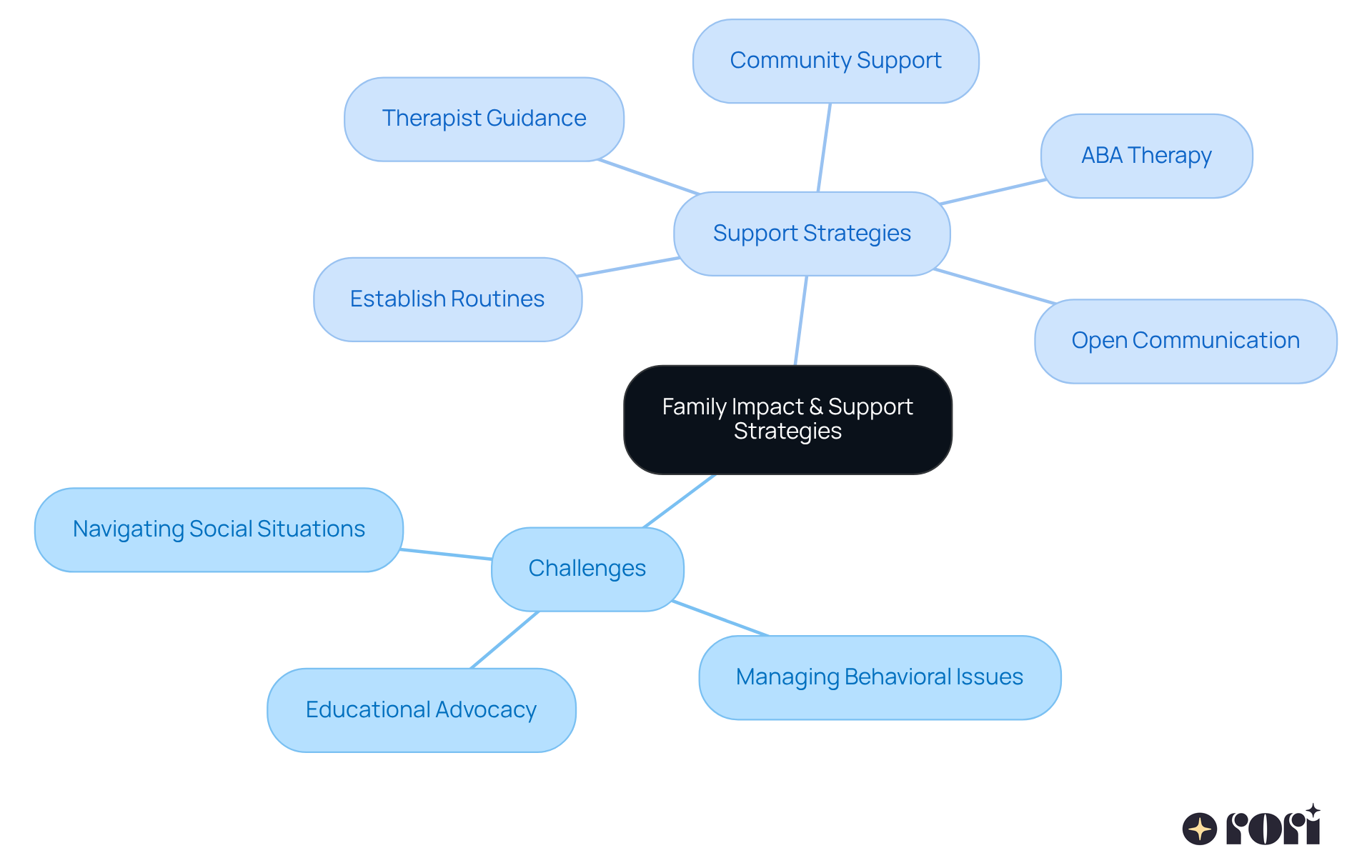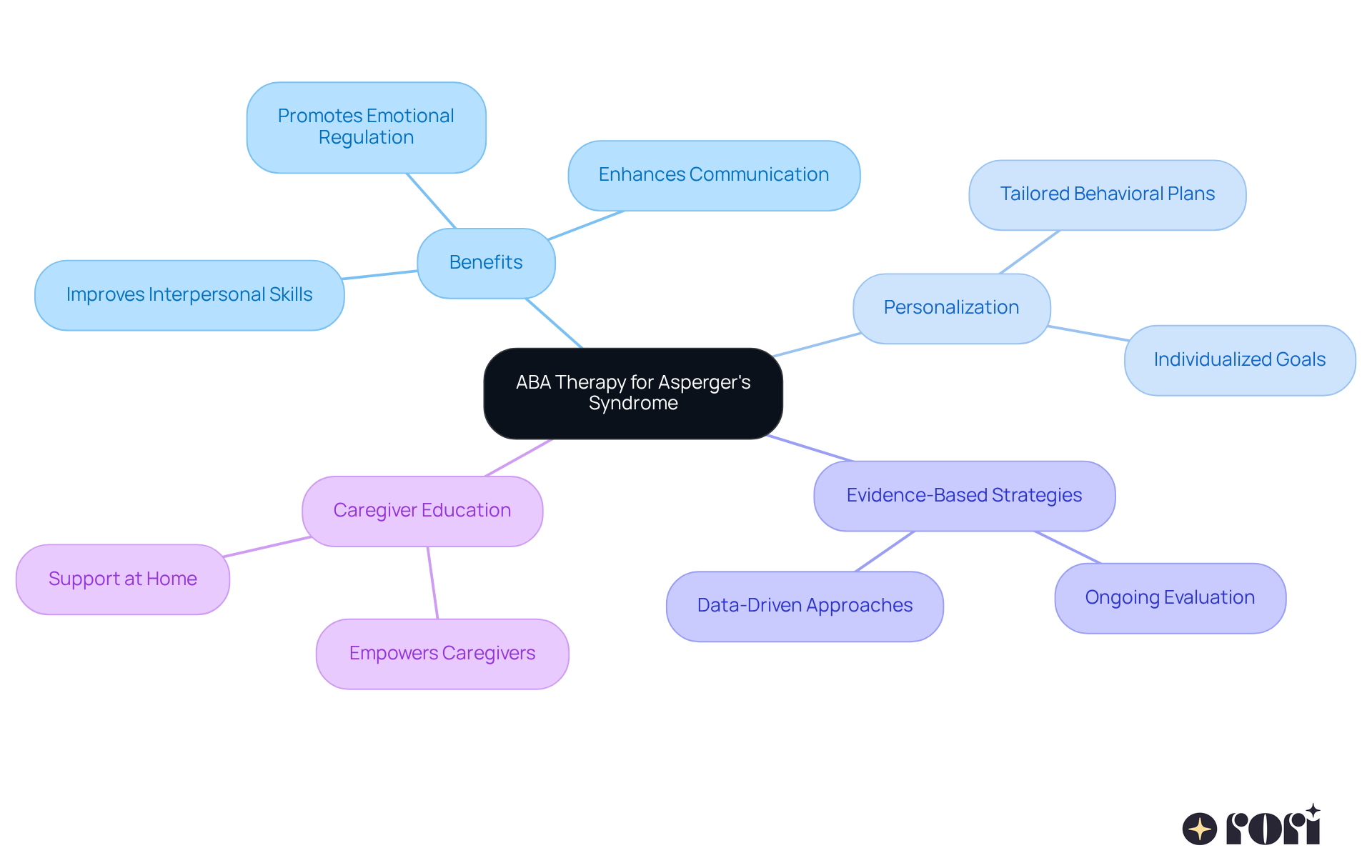Asperger's Syndrome, now known as Autism Spectrum Disorder (ASD) Level 1, brings its own set of challenges that can really affect social interactions and communication skills. For parents navigating this journey, understanding the ins and outs of Asperger's as a special need is so important. It opens up access to vital resources and support systems that can make a world of difference.
But with the definitions and classifications changing over time, how can families make sure they’re ready to advocate for their children’s needs? 🤔 This exploration dives into the characteristics, historical context, and effective strategies that can empower families on their journey. Let’s explore this together!
Asperger's condition, which is Asperger's special needs, now referred to as Autism Spectrum Disorder (ASD) Level 1, brings its own set of challenges, especially in terms of social interactions and communication. Children who exhibit traits of Asperger's, which is Asperger's special needs, often show average to high intelligence and possess strong verbal skills, but they may struggle to pick up on social cues and engage in back-and-forth conversations. This disconnect can make it tough for them to form friendships and navigate social settings, which are so important for their emotional and personal growth.
Did you know that about 1 in 200 people are affected by Asperger's Disorder? It’s more common in boys, too. Many children with autism spectrum disorders, which is Asperger's special needs, also face additional challenges like ADHD and anxiety, which can complicate their interactions even further. These social hurdles can lead to feelings of isolation and anxiety, highlighting just how crucial early diagnosis and intervention is for those whose condition is Asperger's special needs.
Research shows that the sooner the needs associated with Asperger’s special needs are addressed, the better the outcomes tend to be. For parents, understanding these traits is key to advocating effectively for their children, especially when the child is Asperger's special needs, and accessing the right resources and support. Participating in Applied Behavior Analysis (ABA) therapy can significantly improve social skills and overall quality of life.
At Rori Care, we offer caregivers specific ABA strategies, including reinforcement techniques and social skills training, to help their kids reach their behavioral goals. This hands-on approach, combined with data collection, really maximizes the impact of the intervention. It’s not just about promoting youth development; it’s about empowering families to tackle the challenges that come with autism, helping children with ASD lead fulfilling lives.
Let’s explore this journey together! We’re here to help you every step of the way!

Asperger's Disorder was first described by Austrian pediatrician Hans back in 1944. He noticed some unique interpersonal and communication challenges in a group of children. Initially, it was recognized as a separate diagnosis, but it really gained traction in the 1990s when it was included in the DSM-IV. This was a big step, as it provided a clearer framework for understanding the condition.
Fast forward to 2013, and the DSM-5 made some significant changes. It combined Asperger's syndrome with other autism diagnoses under the umbrella of Autism Spectrum Disorder (ASD). This reclassification reflects a broader understanding of autism as a spectrum, recognizing the diverse presentations and needs of individuals. The DSM-5 introduced levels of assistance and consolidated previous categories into two main areas:
This evolution in diagnostic criteria has important implications for kids, as Asperger's is considered special needs. Many may now find themselves classified differently, which could impact their access to resources and specialized assistance, especially for those whose condition is Asperger's special needs. Increased awareness and advocacy have also played a crucial role in shaping the understanding of autism, leading to more accurate diagnoses and better access to behavioral therapies.
At Rori Care, we’re here to support your family’s journey through ABA treatment. We equip caregivers with the knowledge and skills to help their loved ones achieve their behavioral goals. Understanding this historical context is essential for parents navigating the ever-changing landscape of autism diagnoses and what it means for their children's care and support. Let’s explore this together!

Families with youngsters who have Asperger's Syndrome often face unique challenges, as Asperger's is special needs. Navigating social situations, managing behavioral issues, and advocating for educational support can feel overwhelming. Parents might find themselves riding a rollercoaster of emotions—confusion, frustration, hope, and determination.
Establishing routines and fostering open communication can make a world of difference. Seeking guidance from therapists and educators is also a great step forward. At Rori Care, we focus on a patient-centered approach through Applied Behavior Analysis (ABA) therapy. This method adapts to each child's unique needs and has shown remarkable progress in 90% of individuals when caregivers are actively involved. Plus, it’s the only scientifically proven treatment for autism that’s covered by insurance, making it a crucial resource for families.
Connecting with support groups can provide families with valuable resources and a sense of community, enhancing the benefits of ABA therapy. Understanding these dynamics is key for parents of children who have Asperger's special needs, as it helps in creating a nurturing environment that promotes their development and well-being. It also helps caregivers learn ABA principles and strategies to support their children's behavioral goals.
Our clinical leadership at Rori Care is passionate about neurodiversity and committed to the success of every individual. We ensure our approach aligns with values of inclusivity and support. Let’s explore this journey together! We’re here to help you every step of the way!

Applied Behavior Analysis (ABA) therapy is a fantastic option for individuals with Asperger's Syndrome, as it is Aspergers special needs. It focuses on reinforcing positive behaviors and teaching essential skills in a structured way. Many parents find that this approach really helps improve their child's interpersonal skills, communication, and emotional regulation.
One of the great things about ABA is that it’s personalized. Each behavioral plan is tailored to meet the unique needs of your child, making it feel more relevant and effective. Plus, with measurable goals, you can easily track progress and celebrate those little victories along the way! 🎉
Qualified behavior analysts use evidence-based strategies to ensure that the methods applied are the most effective for behavior change. And don’t worry—there’s ongoing evaluation, which means the intervention can be adjusted as needed to optimize outcomes. Recent studies even show that kids in ABA therapy often see significant improvements in social interactions and overall behavior.
For parents, understanding the role of ABA therapy is crucial when caring for a child who is aspergers special needs. It’s also important to recognize the value of caregiver education. This knowledge empowers you to provide better support at home, which can lead to even more positive outcomes for your child. Together, we can create a collaborative environment that fosters your child's development and success.
So, let’s explore this journey together! If you have any questions or experiences to share, we’re here to help you every step of the way!

Asperger's Syndrome, now recognized as part of Autism Spectrum Disorder (ASD) Level 1, brings its own set of unique challenges that truly deserve our understanding and support. For parents, grasping what this diagnosis means is essential, as it shapes not just their child's interactions but their overall development too. By recognizing Asperger's as a special need, we highlight the importance of early intervention and tailored strategies that can really help foster social skills and emotional well-being.
Throughout this article, we’ve shared some key insights about Asperger's Syndrome—its characteristics, its historical evolution, and the profound impact it has on families. We’ve also discussed the necessity of Applied Behavior Analysis (ABA) therapy, which has shown to be effective in enhancing communication, social skills, and emotional regulation for children with Asperger's. Plus, we can’t forget the vital role of parental involvement and community support in navigating the complexities of this condition.
Ultimately, understanding Asperger's Syndrome as a special need opens the door to better resources and support systems for families. It’s so important for parents to advocate for their children, seek out effective therapies, and connect with others who are facing similar challenges. By fostering an inclusive environment that prioritizes neurodiversity, we can help children with Asperger's lead fulfilling lives. Together, we can pave the way for a more understanding and supportive world. Let’s explore this journey together!
What is Asperger's Syndrome now referred to as?
Asperger's Syndrome is now referred to as Autism Spectrum Disorder (ASD) Level 1.
What are the key characteristics of children with Asperger's Syndrome?
Children with Asperger's Syndrome often show average to high intelligence and possess strong verbal skills but may struggle with social interactions, communication, and picking up on social cues.
How common is Asperger's Disorder?
About 1 in 200 people are affected by Asperger's Disorder, and it is more common in boys.
What additional challenges do children with Asperger's Syndrome often face?
Many children with Asperger's Syndrome also face additional challenges such as ADHD and anxiety, which can complicate their social interactions.
Why is early diagnosis and intervention important for children with Asperger's Syndrome?
Early diagnosis and intervention are crucial because the sooner the needs associated with Asperger's are addressed, the better the outcomes tend to be.
How can parents support their children with Asperger's Syndrome?
Parents can support their children by understanding the traits of Asperger's Syndrome, advocating for their needs, and accessing the right resources and support.
What therapy can improve social skills for children with Asperger's Syndrome?
Participating in Applied Behavior Analysis (ABA) therapy can significantly improve social skills and overall quality of life for children with Asperger's Syndrome.
What specific strategies does Rori Care offer to caregivers?
Rori Care offers caregivers specific ABA strategies, including reinforcement techniques and social skills training, to help children reach their behavioral goals.
What is the overall goal of the interventions provided by Rori Care?
The overall goal is to promote youth development and empower families to tackle the challenges associated with autism, helping children with ASD lead fulfilling lives.